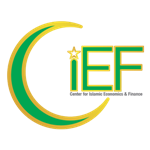Research And Development Of Organic Fertilizer From Banana Peels: Halalan Tayyiban Perspective
Abstract
In modern agriculture, most of the biochemicals and inorganic fertilizer had been used for the plantation on the worldwide scale. Whilst, the issue of food waste had created concern for the global community because of its potential for pollution. In Brunei Darussalam, food waste has the highest percentage followed by paper and plastic. According to the Scientia Bruneiana, vol.17, no.2, according to the Department of Environment, Parks, and Recreations, 400 – 500 tonnes of waste goes to Sg. Paku landfill in Tutong District each day. This issue was raised by the people that prioritized the application of the Macro Organic Local which is the organic fertilizer derived from rainwater and food waste. They emphasize the concept of zero-waste and go-green to manage the problems of the polluted environment. Therefore, ‘Potilizer’ production that is based on the organic sources mainly from banana peels is to solve the problems of food waste and raise awareness to the community to reduce waste. ‘Potilizer’ aims to reach out to the farmers, entrepreneurs, and individuals to fully utilize organic waste and to be confident in its usage. The methodology used is by conducting some experiments on each type of plant-based on the research study from the existing information with regard to farming. The use of data collection is from the books, the internet, by interviewing the farmers and conducting the survey about natural fertilizer. The novelty of this product is by the application of the conservation concept and it will present as the first organic fertilizer in Brunei Darussalam to be commercialized at a very affordable price and good quality. ‘Potilizer’ has the opportunity to penetrate the market as it can benefit the farmers, entrepreneurs, agricultural school institutions, as well as for the house-gardening purposes to assist them in this field.
Keywords
Full Text:
PDFReferences
Arnarson, A. (2019, May 7). healthline. Retrieved from Bananas 101: Nutrition Facts and Health Benefits: https://www.healthline.com/nutrition/foods/bananas
Zara Ingilizian, S.W. (2019, July 29). We Forum. Retrieved from We Forum: https://www.weforum.org/agenda/2019/07/reusable-plastic-packaging/
Author, G. (2018, October 1). Looka. Retrieved from Looka Web site: https://looka.com/blog/logo-shapess-meanings/ Federal Board of Revenue (2009) [Online] Retrieved from http://www.cbr.gov.pk/news/default.asp
Dierks (2011) Market Watch 2010 – The Food Industry. Malaysian-German Chamber of Commerce & Industry. H. F Hassan, U. F. (2018). ARC Journal. Retrieved from ARC Journal Web site: https://www.arcjournals.org/pdfs/ijarcs/v5-i5/3.pdf
Haifa Group. (2020). Haifa Group. Retrieved from Haifa Group Website: https://www.haifa-group.com/banana-fertilizer/crop-guide-banana-fertilizer Sublime Garden Design. (n.d.). Retrieved from https://sublimegardendesign.com/about-sublime-garden-design-landscape-architecture/f aqs/
Zainalabidin Mohamed & Mad Nasir Shamsudin. (2015). Can Halal Be Sustainable? Study on Malaysian Consumer's Perspective. Journal of Food Products Marketing, pg 654.
DOI: http://dx.doi.org/10.24042/febi.v5i2.7060
Refbacks
- There are currently no refbacks.
Copyright (c) 2020
Ikonomika : Jurnal Ekonomi dan Bisnis Islam is a Journal of Islamic Economics and Business, Published by the Faculty of Islamic Economics and Business at UIN Raden Intan Lampung Indonesia. This work is licensed under a Creative Commons Attribution-ShareAlike 4.0 International License.


